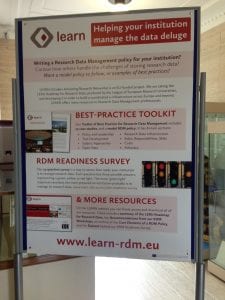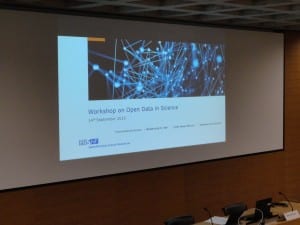The Pro-Vice-Provost’s View
By Paul Ayris, on 15 January 2020
Open Science and the Indian Institute of Technology Delhi
On 15-17 January, UCL Library Services is hosting a distinguished visitor, Dr Nabi Hasan, Librarian and Head, Indian Institute of Technology Delhi.
IIT Delhi is one of UCL’s key emerging partners in India – just as the visitors from Witwatersrand in South Africa, who joined us in November 2019, are for that region of the world. As London’s Global University, UCL is developing a number of key partnerships and the Library is honoured to be asked to support UCL’s work in these endeavours.
The theme of Dr Hasan’s visit is Open Science. Although the visit is only one day old, a number of Open Science themes have emerged where possibilities for sharing and development have been identified. The first is in the UCL Press OA publishing model, which is of great interest to the IIT Delhi. The second is the response which UCL has made to delivering services which support research data management in an Open Science environment. The third is in the role of the Library as an institutional Leader to deliver Open Science practice and policies across the University.
Nabi also gave a presentation on the world of librarianship in India and on the work of his own library service in the IIT Delhi. Like UCL, IIT Delhi is a family of libraries – 20 in total. At a glance, the Central Library offers the following facilities and services which are available to 10,275 students and 685 Faculty members:
- Reader Services Division
- Collection Development Division
- Technical Processing Division
- Electronic Resources Division
- Research Support Services and Outreach Program
- Library App
- Faculty Profiling System
- Exploring International Library Collaborations
- Exploring Semantic/AI/Query based services for Ask the Librarian, eNewsClippings, Faculty Publications, etc.
- Exploring Robotic-based Closed Access Services
- Interactive Website
- Marketing of Library Resources, Services and Products
- Text Book, Book Bank and Theses
- Humanities and Social Science (HUSS), etc.
All in all, a thoroughly enjoyable day. Many thanks to all colleagues in UCL Library Services, to UCL ISD and to RLUK (Research Libraries UK) who are contributing to the programme over the three days.
Paul Ayris
Pro-Vice-Provost (UCL Library Services)
 Close
Close









